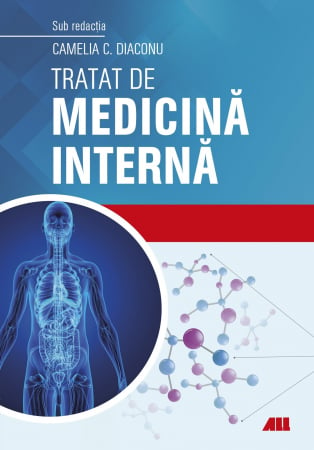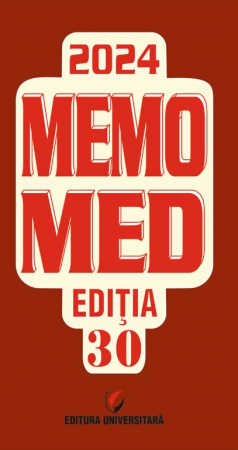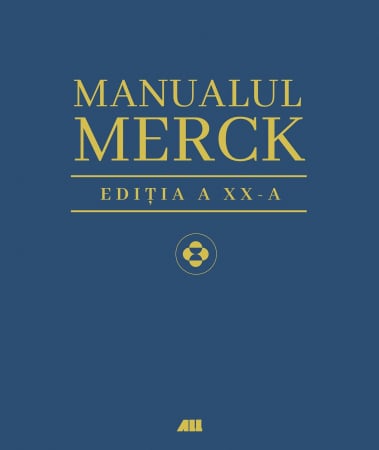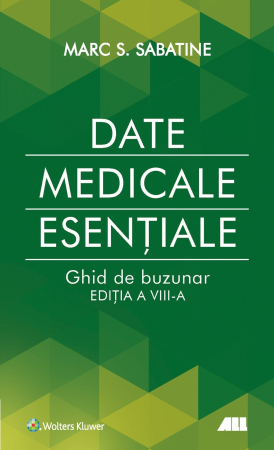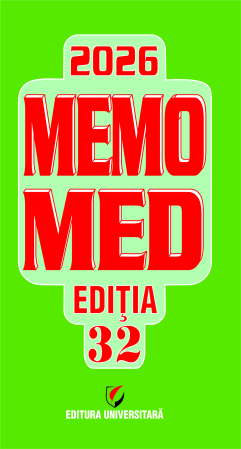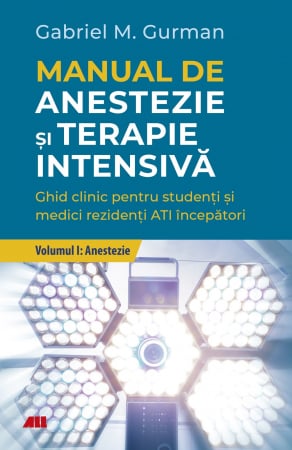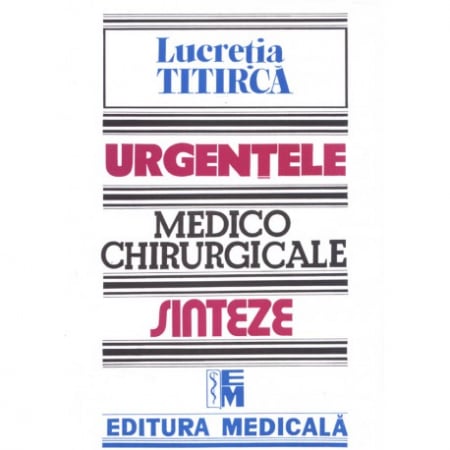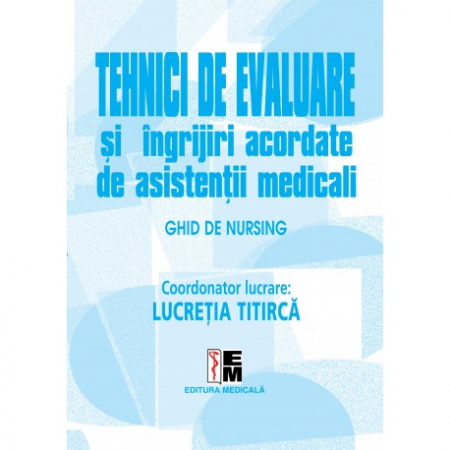Manuscript proposals: [email protected] / 0745 204 115 //// Tracking orders Individuals / Sales: 0745 200 357 / Orders Legal entities: 0721 722 783
ISBN: 978-973-749-948-6
Publisher year: 2010
Edition: I
Pages: 310
Publisher: Editura Universitară
Author: Vasile G. Ciubotaru
Product Code:
9789737499486
Do you need help?
0745 200 357
- Description
- Download (1)
- Authors
- Content
- More details
- Reviews (0)
The present editorial includes the contributions of several authors appreciated in medical practice and literature. Each analyzes a series of current realities and proposes some remedies at the internal, section level.
Part I deals with managerial aspects of the organization and management of the ward / department: current trends in hospital ward management amid current challenges in the health system, management by objectives, clinical ward management, stress and risks of the profession.
Part II considers human resources management, professional training, job satisfaction and motivation, management principles and staff relocation.
Part III is dedicated to the relationship between the medical staff and the patient, including his family. The chapters include interesting approaches to trust in personal-patient relationships, specific aspects of the relationship with terminal patients, the elderly or diagnosed with cancer, the relationship with the patient's companions.
Without claiming to exhaust the range of issues or topics located at the grassroots level of representative organizations in the health system, the hospital, the paper aims to mobilize internally, challenging all physicians to propose local management solutions. Deliberately, the paper does not address administrative or service management issues, but focuses on the organizational approach targeting two major issues:
1. the management system, revealing development opportunities oriented towards processes and organizational behavior,
2. the relationship with the client / patient, selecting the analysis of special categories of patients, taking into account the personality and conduct of the medical staff, but also of the family or "belongings" of the patient.
Part I deals with managerial aspects of the organization and management of the ward / department: current trends in hospital ward management amid current challenges in the health system, management by objectives, clinical ward management, stress and risks of the profession.
Part II considers human resources management, professional training, job satisfaction and motivation, management principles and staff relocation.
Part III is dedicated to the relationship between the medical staff and the patient, including his family. The chapters include interesting approaches to trust in personal-patient relationships, specific aspects of the relationship with terminal patients, the elderly or diagnosed with cancer, the relationship with the patient's companions.
Without claiming to exhaust the range of issues or topics located at the grassroots level of representative organizations in the health system, the hospital, the paper aims to mobilize internally, challenging all physicians to propose local management solutions. Deliberately, the paper does not address administrative or service management issues, but focuses on the organizational approach targeting two major issues:
1. the management system, revealing development opportunities oriented towards processes and organizational behavior,
2. the relationship with the client / patient, selecting the analysis of special categories of patients, taking into account the personality and conduct of the medical staff, but also of the family or "belongings" of the patient.
-
Hospital Department Management
Download
ALEXANDRU-VLAD CIUREA is a primary neurosurgeon, doctor of medical sciences, professor of neurosurgery at the University of Medicine and Pharmacy "Carol Davila". He is Vice President of the World Federation of Neurosurgery Societies (WFNS), Honorary President of the Romanian Society of Neurosurgery (RSN), President of the Romanian Society of Neuro-Oncology (SNOR), Full Member of the Romanian Academy of Medical Sciences, Head of the First Clinic of Neurosurgery Emergency Clinical Hospital
"Bagdasar-Arseni".
VASILE GH. CIUBOTARU is a primary neurosurgeon, doctor of medical sciences. He is the Head of the III Neurosurgery Clinic at the "Bagdasar-Arseni" Emergency Clinical Hospital. He has been Treasurer of the Romanian Society of Neurosurgery since 1990. He is the author of numerous awards for surgery (in Romania) in the field of neurosurgery. His academic work includes books and studies in neurosurgery and health management.
EUGEN AVRAM is a university lecturer, doctor in psychology, holder in the Department of Psychology of the University of Bucharest, specialist psychologist at the Emergency Clinical Hospital "Bagdasar-Arseni". He has training in organizational psychology, health management and cognitive-behavioral psychotherapy.
"Bagdasar-Arseni".
VASILE GH. CIUBOTARU is a primary neurosurgeon, doctor of medical sciences. He is the Head of the III Neurosurgery Clinic at the "Bagdasar-Arseni" Emergency Clinical Hospital. He has been Treasurer of the Romanian Society of Neurosurgery since 1990. He is the author of numerous awards for surgery (in Romania) in the field of neurosurgery. His academic work includes books and studies in neurosurgery and health management.
EUGEN AVRAM is a university lecturer, doctor in psychology, holder in the Department of Psychology of the University of Bucharest, specialist psychologist at the Emergency Clinical Hospital "Bagdasar-Arseni". He has training in organizational psychology, health management and cognitive-behavioral psychotherapy.
PART I
DEPARTMENTAL MANAGEMENT
Chapter 1
A. V. Ciurea
The management of the hospital department in the context of the current challenges in the Romanian health system / 11
Chapter 2
Vasile G. Ciubotaru
Objective management in the neurosurgery clinic / 35
Chapter 3
Cornel Mihalache
Management of the clinical department / 51
Chapter 4
Cary L. Cooper, Gordon Tinline, Ivan Robertson
From stress to well-being in the context of the British health system / 73
Chapter 5
Mariana Ispas Cotiga
Health and safety risks at work / 85
PART II
PERSONNEL MANAGEMENT
Chapter 6
Iuliana Badulescu
Human resources management in health / 111
Chapter 7
Alexandru Tascu
Modernization of training programs for medical staff / 133
Chapter 8
Valentin Cismaru, Madalina Duta, Ioana Mihai
Principles of personnel policies in hospital departments / 153
Chapter 9
Daniel Sandru, Dumitru Mohan, Cornel Mihalache
Satisfaction at work in the hospital / 171
Chapter 10
Eugen Avram, Adrian Gorbanescu
Flexibility and relocation of medical staff / 189
PART III
RELATIONSHIP WITH THE PATIENT
Chapter 11
Valentin T. Grigorean
The theory of trust in the doctor-patient relationship / 207
Chapter 12
Mihai Popescu
Trust in healthcare / 223
Chapter 13
Eva Gheorghita
Medical staff and terminal patient / 240
Chapter 14
Dumitru Mohan, Aurel G. Mohan
Therapeutic relationship with the elderly patient / 257
Chapter 15
Cristina Negoita
Psychological aspects in neoplastic disease in the adult patient / 280
DEPARTMENTAL MANAGEMENT
Chapter 1
A. V. Ciurea
The management of the hospital department in the context of the current challenges in the Romanian health system / 11
Chapter 2
Vasile G. Ciubotaru
Objective management in the neurosurgery clinic / 35
Chapter 3
Cornel Mihalache
Management of the clinical department / 51
Chapter 4
Cary L. Cooper, Gordon Tinline, Ivan Robertson
From stress to well-being in the context of the British health system / 73
Chapter 5
Mariana Ispas Cotiga
Health and safety risks at work / 85
PART II
PERSONNEL MANAGEMENT
Chapter 6
Iuliana Badulescu
Human resources management in health / 111
Chapter 7
Alexandru Tascu
Modernization of training programs for medical staff / 133
Chapter 8
Valentin Cismaru, Madalina Duta, Ioana Mihai
Principles of personnel policies in hospital departments / 153
Chapter 9
Daniel Sandru, Dumitru Mohan, Cornel Mihalache
Satisfaction at work in the hospital / 171
Chapter 10
Eugen Avram, Adrian Gorbanescu
Flexibility and relocation of medical staff / 189
PART III
RELATIONSHIP WITH THE PATIENT
Chapter 11
Valentin T. Grigorean
The theory of trust in the doctor-patient relationship / 207
Chapter 12
Mihai Popescu
Trust in healthcare / 223
Chapter 13
Eva Gheorghita
Medical staff and terminal patient / 240
Chapter 14
Dumitru Mohan, Aurel G. Mohan
Therapeutic relationship with the elderly patient / 257
Chapter 15
Cristina Negoita
Psychological aspects in neoplastic disease in the adult patient / 280
The management of the hospital department represents, at present, the orientation with the greatest practical relevance in the Romanian health management. The troubled history of the local health system has shown that all reforms, all promises and top-level changes have not had results in the modernization plan expected by the beneficiaries and employees of the system. Significant results were obtained through the efforts of doctors, department heads, clinic. All the problems of the system were deeply felt by the practitioners, by the patients. This reality has led us to promote several specialized works in health management, with direct reference to the management of the organization, medical units: Management of health systems and organizations (2010, Editors: AV Ciurea, Cary L. Cooper, Eugen Avram, "Carol Davila" University Publishing House, Bucharest), Modern Management in Health Organizations. Perspectives in Neurosurgery Services (2009, authors: A.V. Ciurea, V.G. Ciubotaru, E. Avram, Medical Publishing House, Bucharest), Development of management in health organizations. Excellence in neurosurgery services (2007, authors: A.V. Ciurea, V. Gh. Ciubotaru, E. Avram, University Publishing House, Bucharest).
Every section head has learned that in a confusing system only the practice of a coherent management at section level can be the salvation! Practitioners must find internal solutions without waiting for the system to support them. Therefore, the management of the hospital department is the most relevant solution in the current context. Everyone must be self-sufficient, take care of their own section, clinic, their own department, department, trying to avoid the "meteorites" that come at high speed from the Ministry, from the system and that produce currents. Every doctor needs to focus on his "garden".
This book proposes a new destiny for those who have dedicated themselves to medicine: to manage the department, accepting to be abandoned by the system. Of course, so far all the department heads, all the practitioners have done this, but from now on this trend is official. She asks us to develop new coordinates of organization, mobilization. In other words, today we must RELEASE ourselves in a historical moment of crisis, in a confused system, in a society in which we are blamed and invited to leave to serve other health systems. Yes, we must invigorate ourselves in our wards, take care of our patients, lead employees on the right path, succeed in fulfilling our duty and mission!
The paper completes our editorial approaches from the past years and makes the transition from system management, organization management to departmental management.
The present editorial includes the contributions of several authors appreciated in medical practice and literature. Each analyzes a series of current realities and proposes some remedies at the internal, section level.
Part I deals with managerial aspects of the organization and management of the ward / department: current trends in hospital ward management amid current challenges in the health system, management by objectives, clinical ward management, stress and risks of the profession.
Part II considers human resources management, professional training, job satisfaction and motivation, management principles and staff relocation.
Part III is dedicated to the relationship between the medical staff and the patient, including his family. The chapters include interesting approaches to trust in personal-patient relationships, specific aspects of the relationship with terminal patients, the elderly or diagnosed with cancer, the relationship with the patient's companions.
Without claiming to exhaust the range of issues or topics located at the grassroots level of representative organizations in the health system, the hospital, the paper aims to mobilize internally, challenging all physicians to propose local management solutions. Deliberately, the paper does not address administrative or service management issues, but focuses on the organizational approach targeting two major issues:
1. the management system, revealing development opportunities oriented towards processes and organizational behavior,
2. the relationship with the client / patient, selecting the analysis of special categories of patients, taking into account the personality and conduct of the medical staff, but also of the family or "belongings" of the patient.
Prof. Dr. A. V. Ciurea
Head of Clinical Section I Neurosurgery,
Sp. Cl. de Urg. Bagdasar-Arseni, Bucharest
Every section head has learned that in a confusing system only the practice of a coherent management at section level can be the salvation! Practitioners must find internal solutions without waiting for the system to support them. Therefore, the management of the hospital department is the most relevant solution in the current context. Everyone must be self-sufficient, take care of their own section, clinic, their own department, department, trying to avoid the "meteorites" that come at high speed from the Ministry, from the system and that produce currents. Every doctor needs to focus on his "garden".
This book proposes a new destiny for those who have dedicated themselves to medicine: to manage the department, accepting to be abandoned by the system. Of course, so far all the department heads, all the practitioners have done this, but from now on this trend is official. She asks us to develop new coordinates of organization, mobilization. In other words, today we must RELEASE ourselves in a historical moment of crisis, in a confused system, in a society in which we are blamed and invited to leave to serve other health systems. Yes, we must invigorate ourselves in our wards, take care of our patients, lead employees on the right path, succeed in fulfilling our duty and mission!
The paper completes our editorial approaches from the past years and makes the transition from system management, organization management to departmental management.
The present editorial includes the contributions of several authors appreciated in medical practice and literature. Each analyzes a series of current realities and proposes some remedies at the internal, section level.
Part I deals with managerial aspects of the organization and management of the ward / department: current trends in hospital ward management amid current challenges in the health system, management by objectives, clinical ward management, stress and risks of the profession.
Part II considers human resources management, professional training, job satisfaction and motivation, management principles and staff relocation.
Part III is dedicated to the relationship between the medical staff and the patient, including his family. The chapters include interesting approaches to trust in personal-patient relationships, specific aspects of the relationship with terminal patients, the elderly or diagnosed with cancer, the relationship with the patient's companions.
Without claiming to exhaust the range of issues or topics located at the grassroots level of representative organizations in the health system, the hospital, the paper aims to mobilize internally, challenging all physicians to propose local management solutions. Deliberately, the paper does not address administrative or service management issues, but focuses on the organizational approach targeting two major issues:
1. the management system, revealing development opportunities oriented towards processes and organizational behavior,
2. the relationship with the client / patient, selecting the analysis of special categories of patients, taking into account the personality and conduct of the medical staff, but also of the family or "belongings" of the patient.
Prof. Dr. A. V. Ciurea
Head of Clinical Section I Neurosurgery,
Sp. Cl. de Urg. Bagdasar-Arseni, Bucharest
If you want to express your opinion about this product you can add a review.
write a review

6359.png)
![Hospital Department Management - Vasile G. Ciubotaru, Alexandru-Vlad Ciurea, Eugen Avram [1] Hospital Department Management - Vasile G. Ciubotaru, Alexandru-Vlad Ciurea, Eugen Avram [1]](https://gomagcdn.ro/domains/editurauniversitara.ro/files/product/large/managementul-seciei-de-spital-2209-150834.jpg)


